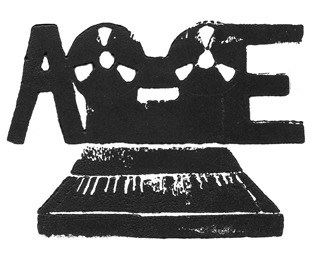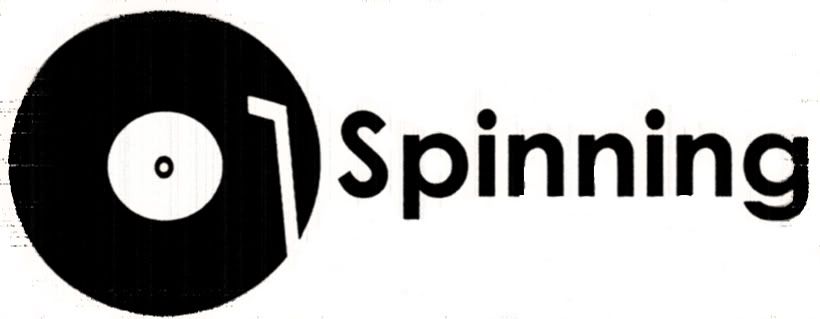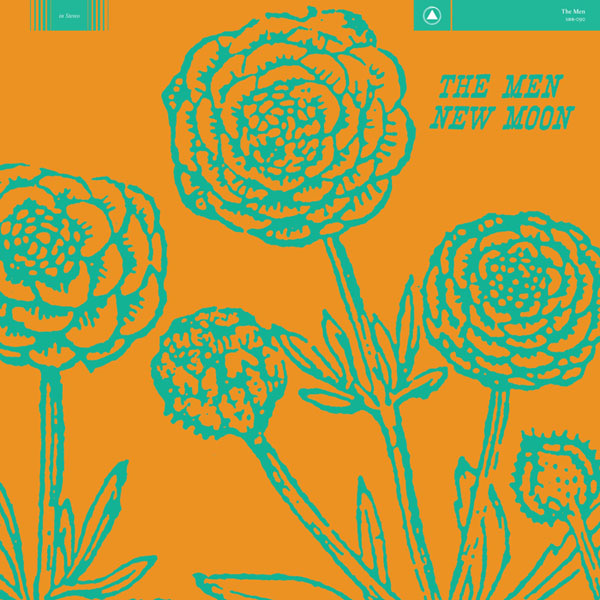
It's a sham that the evaluation of music is so closely associated with the taste and king making of “cool.” That certain aesthetics and cultural identities are so closely associated with certain types of alternative and independent music is absolutely inevitable, but when it comes to listening to music and evaluating it for its worth, it’s profoundly disappointing to learn certain bands and their albums are simply ignored because they lack identifiable factors of that niche brand of "cool" that is so rigorously developed and sold. I’m writing because one of the year’s best albums may not even be reviewed by what most consider the leading voice in online music criticism—and perhaps music criticism in general—and it’s a giant gaping hole in what’s touted as journalism.
The album I'm talking about is Middle Brother's—a band comprised of the chief singers and songwriters from Deer Tick, Delta Spirit and Dawes—and the source of my ire is the music site, Pitchfork. While Deer Tick's three albums have at least been reviewed on the music site (though never earning more than a score of 5.8), the other two bands—Delta Spirit and Dawes—have never once been mentioned. Now, of course, not every album in the world can be reviewed—it’s simply impossible. But these are successful young bands with sizable and devoted followings. More specifically, followings comprised of the very people that read Pitchfork.
So why would Deer Tick receive attention (albeit scathing) and Delta Spirit and Dawes be completely ignored? Is it because of the labels they're signed to? While Deer Tick's Partisan Records is an independent label, Dawes is signed to ATO and Delta Spirit to Rounder Records—both subsidiaries of larger companies. No, that can't be it, because My Morning Jacket is on ATO and They Might Be Giants are on Rounder and both have received ample coverage. It’s certainly not the size of the band either, as every droplet of ball sweat from the now inarguably mainstream Arcade Fire and Strokes are swallowed and regurgitated as news from Pitchfork. Is it a genre problem? Does Pitchfork simply distaste folk music and its roots-rock and folk-rock neighbors? Yes. They really do.
The much beloved Dr. Dog, who have developed an impressive fan base over the years, have never earned higher than a score of 6.7. Josh Ritter and Justin Townes Earle, critical folk darlings and prodigious wordsmiths beloved by both small blogs and elite newspapers like the New York Times, have never once been mentioned. [correction: 2 of 6 Ritter albums were reviewed] The debut album from the Futurebirds, a bright young band who’s soaring choruses and ramshackle play is near impossible to ignore, has never been mentioned either. Yet, Phosphorescent and The Tallest Man On Earth have received steady support on the site. What’s the difference? They all play some form of folk and folk-oriented rock music.
Pitchfork wants to be the decider of what is “new” and “important” music and solicit it. The site is a brand maker. If a band seems overtly derivative to the reviewers—if it doesn’t have that highly sought after “new” element—that conception of unoriginality can quickly become kryptonite for a band. Now, if that were consistently true, that would be perfectly rational and I would have no complaint. But it’s an argument of convenience picked up and dropped as needed. I adore the Tallest Man On Earth’s Kristian Matsson and believe he’s developed his own unique voice and style of play, but the fact remains that he’s indebted to Bob Dylan in more than your average way. Just listen to the cadence of his singing voice. Phosphorescent’s To Willie (7.6 rating) is an incredibly fun and well-executed album, but how is a collection of Willie Nelson covers more original than an album of original Deer Tick songs? That is after all the argument against Deer Tick: “[they] have never really stood out” and only achieve “superficial mimesis and comforting recognition.”
Sharon Van Etten, another Pitchfork darling and one of my own favorite songwriters (full disclosure: I own a sweet Van Halen-style Van Etten t-shirt), plays an acoustic guitar and sings songs about heartbreak and broken relationships. Taylor Goldsmith’s role in Dawes is much the same. Where is this invisible line drawn? Both musicians have exceptional vocal chords. Of course criticism is subjective and you can like and dislike whomever you want—it’s the exclusivity that is reprehensible. Van Etten works for an independent record label in New York City while Goldsmith lives in LA. Is it a geographic problem? Or does Goldsmith simply not have the right look?
In music—as it is in all art forms—everything is a derivation of something else to a degree. Everybody owes something to somebody. If we step outside of folk into the alternative realm, how many bands would there be without the Velvet Underground or The Pixies? Calling one thing new and another derivative is often a lazy and incredibly subjective form of analysis: nothing after all is completely original. If all a critic is looking for is that element of “new,” a lot of great music is going to be overlooked.
It’s fun and healthy to have arguments about what is “great” music and what is “bad” music. The glaring problem is when you don’t invite everyone to the party. Music should never be about exclusivity. It’s an escapist art form that’s supposed to get away from the menial social problems of the world. Sure, there will always be bands that get ignored—there are simply too many making music. But when a band offers a high level of professionally recorded and executed music and has a large enough following to pack clubs across the country, why not invite them in for a discussion? Bash the album if you want. But at least acknowledge they exist and that they’re having an impact. To ignore that would be to simply create a revisionist version of contemporary music—one that’s not at all accurate.
Maybe the Middle Brother album will be reviewed, but that still doesn't explain why Ritter and Earle—who both released critically acclaimed albums last year—are ignored. Or why Dawes, the Futurebirds, and Delta Spirit are ignored. If Pitchfork is truly going to be the leader in professional music criticism, their reviewers' outlook cannot continue to be this narrow-minded.
Please note: I read Pitchfork every day. I simply hope the site will improve. Maybe they need another sister site: Pitchfolk?
Dawes - "When My Time Comes" (from North Hills)
Delta Spirit - "Bushwick Blues" (from History From Below)

















They just reviewed Breathe Owl Breathe today. Not sure why that makes the cut and not Futurebirds.
ReplyDeleteWhy does it matter what does and doesn't make the pages of Pitchfork? Plenty of other blogs etc flying the flag.
ReplyDeleteWell, first off, I just think it's interesting to look at what a site as large as Pitchfork does and does not cover.
ReplyDeleteBut more importantly—because the site has more or less become the Rolling Stone for the Net Generation—I believe its coverage should be representative of its readers. It just seems awkward to ignore bands a large group of people are talking about and listening to.
Like anyone else, I'm sure their editorial staff leans this way or that on various bands. I would imagine purveyors of hip hop, metal, etc. might make the same argument against Pitchfork.
ReplyDeleteAs Ewan implied, what it really underscores is the necessity for diversity in one's sources for critique.
@Chris Well said, sir: "the necessity for diversity in one's sources for critique."
ReplyDeleteSo true.. I drunkenly yelled something along the lines of this article to a member of Delta Spirit after a show a few years ago.
ReplyDeleteThis comment has been removed by the author.
ReplyDeleteyes and yes and yes. other bands in the same vein: good old war, the head and the heart, etc.
ReplyDeletepitchfork is bullshit and everyone knows it, even Kayne and he can't score less than perfect if he tried to, with a vocoder.
ReplyDeleteActually, they've reviewed two of Josh Ritter's albums and given "Hello Starling" the praise that it deserves.
ReplyDeletehttp://pitchfork.com/artists/3658-josh-ritter/
@Anonymous Thanks for the correction. Always appreciated. Very strange they reviewed those two and not Animal Years or So Runs The World Away (what I would consider his two best).
ReplyDeleteAlso strange Steve Earle is reviewed, but not Justin Townes Earle.
The site ignores folk music so much that their writers chose a folk album as their favorite album in 2008 . . .
ReplyDeleteIf you actually read the article, I discuss how they cover certain folk artists like the Tallest Man On Earth, Sharon Van Etten, and yes, The Fleet Foxes. The question I draw is why certain artists are covered and others are not.
ReplyDeleteI got to be honest, I didn't believe you when you said Delta Spirit/Dawes weren't ever reviewed. On second look, I'm shocked to see you're right. Really surprised by this...
ReplyDeleteI guess it boils down to demographics of the readers, and folk/Americana listeners must not be traditional readers of the site (the same goes with stuff like metal and hip-hop) so they take, arguably (or subjectively), the "cream of the crop" and review them and call it day. It's nothing personal, just a business decision on the part of p4k.
@bryant Well said. And you're probably right. It'll be interesting to see whether or not their coverage will expand as the site continues to grow.
ReplyDeleteI've been sharing this with friends, good article. You'd think that with the amount of music they cover they'd be interested in getting behind some more Americana-tinged folk, especially artists who have rather large followings. But I suppose that's why we have Slowcoustic and the rest to balance out the buzz.
ReplyDeleteThanks for writing this, Matt. I think you make a good point that needs to be shared...
ReplyDeleteCouldn't agree more. Added my own angry two cents here http://poisonyourmind.wordpress.com/2011/04/13/the-infuriating-suckiness-of-pitchfork/
ReplyDeleteAny music reviewer who doesn't appreciate "Houston, TX" is an idiot
You like all talking about the music but all the time(I think ) have in mind like oldies comparing to nowadays stuff and 'the question' is why? Why those times records are compared i think you should forget that and get into music and look to music like McCauleys and Goldsmith in other point of view.Just sayin
ReplyDeleteisnt paste paying more attention to these bands? i expect these to be more paste than pitchfork....
ReplyDeletePitchfork can't or won't even design their website to be easily navigable and/or efficient. They really need something like allmusic.com's Discography tab/album list. Being able to see each of an artist's albums they've reviewed, in list form, with the rating next to it, would make the site so much easier to use and enjoyable to read.
ReplyDeleteFailing to pull off such a simple thing in the obvious best way possible raises questions about their overall credibility. You shouldn't give a shit about any perceived snubs. They like plenty of trendy crap and have taken down reviews when their 'stamp of cool' didn't stick.